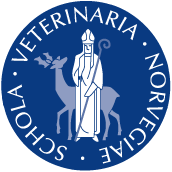

A browser is a program on your computer that enables you
to search ("surf") and retrieve information on the WorldWideWeb
(WWW), which is part of the Internet. The Web is simply a large number
of computers linked together in a global network, that can be accessed
using an address (URL, Uniform Resource Locator, e.g. http://www.veths.no
for the Oslo Veterinary School), in the same way that you can phone anyone
in the world given their telephone number.
URLs are often long and therefore easy to type
incorrectly.
They all begin with http://, and many (but not all) begin with
http://www.
In many cases the first part (http://, or even http://www.) can be
omitted, and you will still be able to access
the page. Try this with http://www.cnn.com.
URLs are constructed in a standard fashion. This
may be of use to you. Take, for example, the address of this page:
The ".no" indicates that the server is in Norway. The page you
have accessed is called basics.html, and it resides in a folder on the
server called "internet", which is in the folder called "teaching". If
the URL that
you type does not work, and you have typed it correctly (no mistakes are
allowed!), the reason may be that the host has renamed the web page,
or moved it to another folder on the server, or you are not allowed access to that level.
Try removing the
text of the URL stepwise from the right-hand end in this example,
until you reach the main page:
It is possible, in many cases, to find your way back down through the hierarchy to the page you were interested in.
You don't need to know how the telephone network functions to
be able to make a phone call. However, you ought to know how
to use your telephone apparatus and the finesses (software) it contains.
Your computer is the equivalent of the telephone, and a browser is the
equivalent of the software that modern telephones contain.
(A browser can also be used to handle electronic mail, create and edit
information on the Internet, as l have done here, and to contact discussion
groups. This presentation is limited to the use of browsers
to surf the WorldWideWeb).
Many web sites offer both, or a combination of, these alternatives.
Before you conduct a search, it is important to consider, among others, the following points:
1. Is your choice of search term is adequate, too restrictive or too
general?
2. Is the search you have planned to undertake most suited for a search
engine that categorizes web sites, so that you can browse through appropriate
subcategories when the first results are returned?
3. Are you more interested in using a search engine that merely returns
all the web pages it has found containing the search term?
4. Have you read the Search Help pages that most search pages offer?
These will tell you how the search engine conducts the search, and therefore
how you ought to plan your search.
5. Bear in mind the fact that engines differ in their coverage of the
Internet, their speed and whether they are largely compiled manually by
people or automatically by 'robots' that scan the Internet.
A search strategy must include knowledge of how the search engine you have planned to use handles Boolean Logic and other similar search terms, e.g.
• transgenic AND mice will find all pages covering transgenic
mice, but not pages that only mention transgenic rats
• transgenic NOT mice will return pages on all species other
than mice.
• "transgenic mice" will find pages that contain the phrase
"transgenic mice", i.e. where the words are adjacent in the text, but will
not return a page containing the text "transgenic rodents, including mice",
for which transgenic NEAR mice would be necessary
• transgen* will return occurences of trangenesis, transgenic
and transgenic (thereby increasing your chances of finding pages you are
interested in), but will also return pages featuring the word 'transgender',
which is probably not what you were looking for!
N.B. Not all search engines support all these options, some support
many more, and all of them have a "default" function (e.g. AND or
OR)
which you must check before you start.
To illustrate the enormous implications that this may have for your search results, try out the following search strings in the AltaVista or Google search engines and note the number of web pages returned for each alternative:
• Karina Smith
• "Karina Smith"
• Karina and Smith
• KARINA and SMITH
• Karin* Smith
• Karin*Smith
Excellent reviews of these processes have been written by information specialist Krys Bottrill. These cover:
• Basic principles when searching the Web
• Choice of search terms and strategies
• Comparison of Search
engines on the Web
The author of these two sites, veterinarian Ken Boschert, has published a book containing summaries of the most important links on these pages: "Mosby's Guide to the Internet".
An introduction to the Internet written in Norwegian.
While you are on the Internet, you can donate free food to the starving: http://www.thehungersite.com